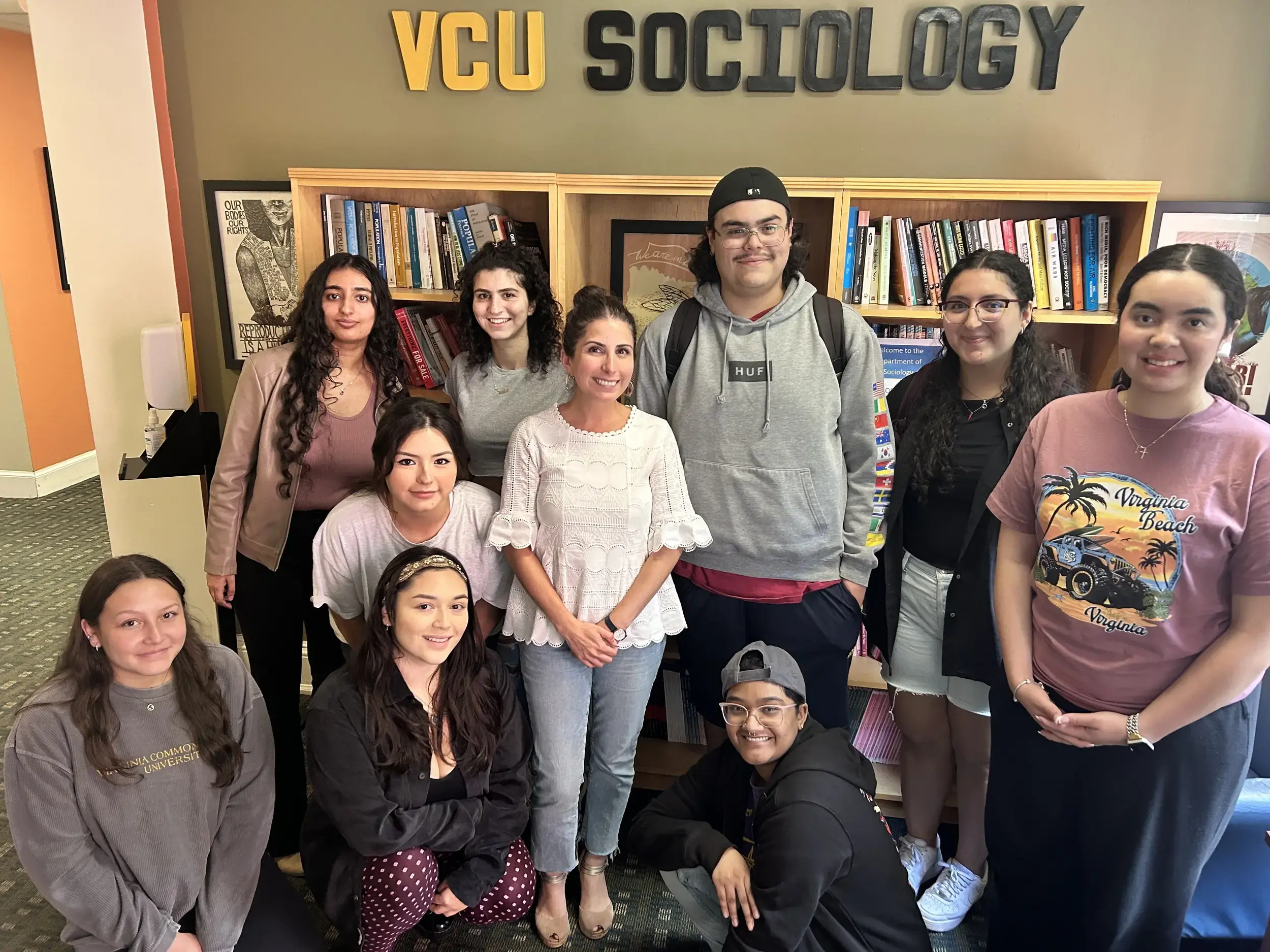More than 1 in 10 Virginia residents are Latino, according to a 2022 report from the Virginia Latino Advisory Board. By 2030, their numbers are estimated to grow to nearly 1.6 million.
While that population is the fastest-growing minority in the state, there are still a number of misunderstandings and stereotypes about Latinos, Virginia Commonwealth University sociologist Gabriela León-Pérez said. Latino Virginia, an oral history project created by assistant professors León-Pérez, Ph.D., and Daniel Morales, Ph.D., is trying to change those perceptions – one interview at a time – by chronicling the successes, challenges and contributions of the state’s Latino residents.
“We thought that it was important to collect these stories to highlight the richness and variety of experiences” in the Latino community, said León-Pérez, who teaches in the Department of Sociology in VCU’s College of Humanities and Sciences.
She and Morales, who teaches in the Department of History, also part of the college, began work on Latino Virginia in 2023 after receiving funding from the VCU Quest Fund and the VCU Transformative Learning Fund. By the end of 2024, León-Pérez said, the project should reach 100 interviews, many of them available online as part of an enduring public database.
“It’s a way to capture the voice of the people,” Morales said. “Future scholars, our students and other people can then come and look at all of these stories and what these people were saying, and see all the different trends that were going on in the Latino population.”
Interviewees include immigrants and U.S.-born Latinos, many of whom reached León-Pérez and Morales through social media or after hearing about the project from a family member or friend who also sat for an interview.
“They really want their stories to be shared,” León-Pérez said. “There is also trust [because] of VCU, in that we’re not random people doing these interviews. And I think the fact that most of the interviewers are Latinos themselves adds an additional layer of trust.”

Students are taking part in the project through the Latino Virginia class, which León-Pérez is teaching during the fall semester. Morales will take over in the spring.
During one recent class, undergraduate research assistants Isabella Alpire-Roca and Mateo McMinn Bautista explained how to transcribe an interview. With modern technology, it’s easier for students nowadays, León-Pérez noted, though they still must be diligent to ensure accuracy.
Third-year biology major and chemistry minor Valentina Lopez Maureira said she wanted to take the Latino Virginia class after working as a research assistant for León-Pérez’s Migration & Health Equity Lab. “I thought it would be interesting and helpful to take [this class] since it would help me gain skills in coding, conducting interviews, transcribing and more,” she said.
Mia Velasquez, a third-year international studies student with a concentration in Latin American studies, said the class is something of a “passion project” for her, noting that most students in the class are from Latino backgrounds.
Over the course of the class, students will conduct three interviews with project participants. The interviews have offered Lopez Maureira “a new perspective on my own culture,” she said. “I had moments during the interviews where I felt sad for a person but also very inspired to learn that someone can go through so much and still move forward. I thought about my own story and how I would answer these questions if someone asked me.”
The Latino Virginia project seeks to highlight both the challenges and the resiliency present in the collection of stories. “It’s important to capture the human aspect of people’s lives,” Morales said.
“The interviews always end with the question, ‘What would you like people to learn from your life story?’” León-Pérez said. “And the common thread we’ve seen is, ‘Don’t feel defeated. There’s always an opportunity to grow or to get out of problems.’ That has really struck me – how people have gotten up from a lot of adversities and obstacles they have faced.”
